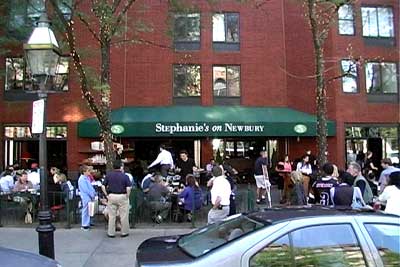Broad Street, Philadelphia, looking North.
Placing the cursor over the image
reveals the same interection looking south.
Which is the more interesting vista?
Consider the same question regarding the image below.
This week we finish Jane Jacobs. If you’re good at “cherry-picking,” or identifying the parts which are important for our particular tasks, and separating them from the parts which are important for other tasks, but not ours, you’ll not have too much difficulty. Focus on the subjects reflected in the chapter notes below. There are pages which you can safely skim. There are other places you’ll need to apply the brakes. You should be getting good at deciding which are which. Now that we're finishing up Jacobs it is probably time for me to ask you to reflect on her book a little. Do I mean an exam? Yup, I guess I do. I'm posting it noBut it won't be due until after Spring Break.


